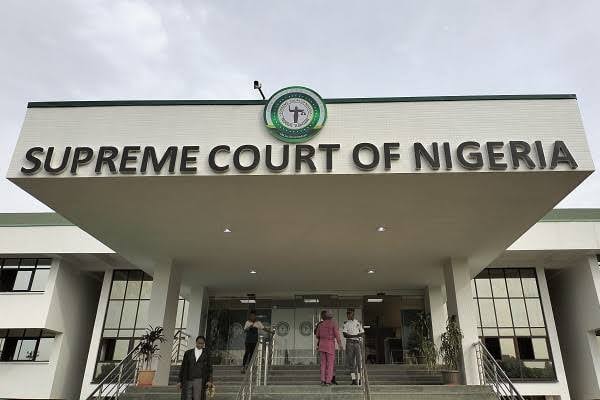
The Supreme Court of Nigeria has reserved judgment in four separate cases related to the ongoing political crisis in Rivers State.
POLITICS NIGERIA reports that the dispute between Governor Siminalayi Fubara and his predecessor who is now the minister of the Federal Capital Territory, Nyesom Wike, has led to unending tension in the state.
Due to the crisis, court cases have been instituted by loyalists of both parties.
The cases at the apex court, which were heard by a 5-man panel of justices led by Justice Musa Uwani Aba-Aji, are part of the lingering battle for control of the state’s political machinery.
The four appeals, marked SC/CV/1174/2024, SC/CV/1175/2024, SC/CV/1176/2024, and SC/CV/1177/2024, were brought before the court by the Rivers State House of Assembly and others against various respondents, including the Rivers State Government, the Rivers State Governor, the Rivers State Independent Electoral Commission (RSIEC), and the Accountant General of Rivers State.
At the heart of the dispute are judgments delivered by the Federal High Court in Abuja, which prohibited the release of monthly funds to Rivers State from the Federation Account and barred the Independent National Electoral Commission (INEC) from releasing voter registers to the state government to conduct local government elections.
The Court of Appeal in Abuja had earlier overturned some of these judgments, citing grave injustice in the findings and decisions. For instance, Justice Joyce Abdulmalik’s ruling, which ordered the stoppage of federal allocations to Rivers State until the governor presented the budget before the Martin Amaewhule-led House of Assembly members, was overturned by the Court of Appeal.
Similarly, the Court of Appeal upturned Justice Peter Lifu’s judgment, which had ruled against the conduct of the October 5, 2024, local government council election in Rivers on the grounds that the due process of Rivers State laws on local government elections had not been followed.
